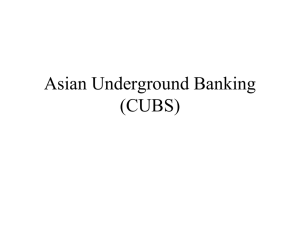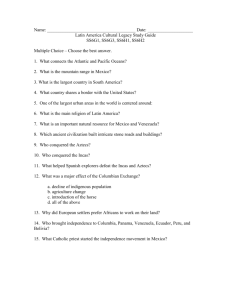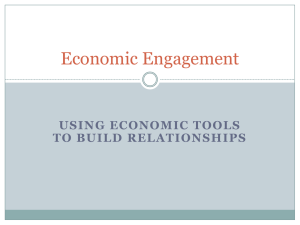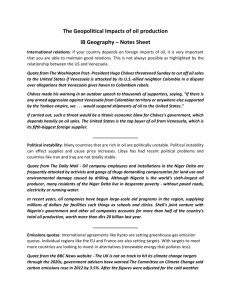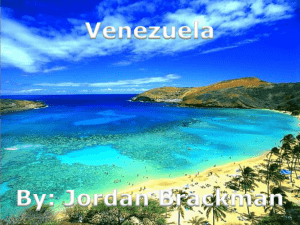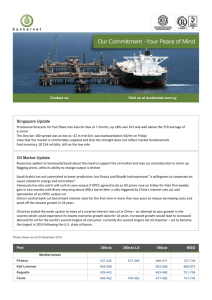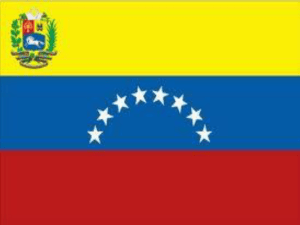Chris Werner (Venezuela)
advertisement
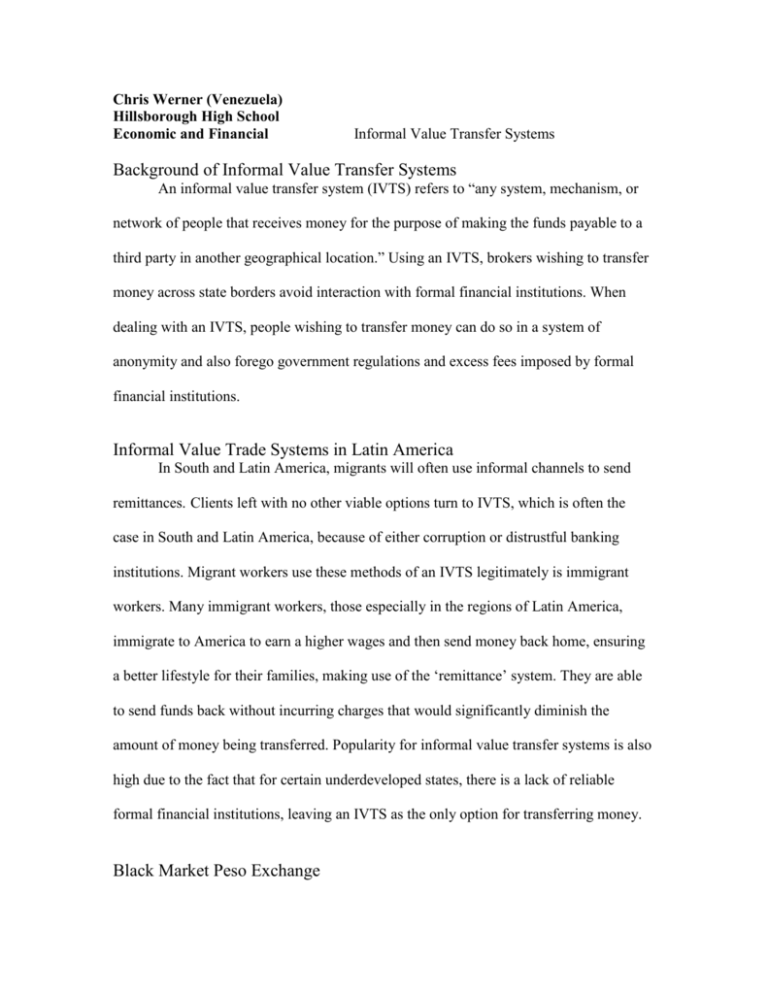
Chris Werner (Venezuela) Hillsborough High School Economic and Financial Informal Value Transfer Systems Background of Informal Value Transfer Systems An informal value transfer system (IVTS) refers to “any system, mechanism, or network of people that receives money for the purpose of making the funds payable to a third party in another geographical location.” Using an IVTS, brokers wishing to transfer money across state borders avoid interaction with formal financial institutions. When dealing with an IVTS, people wishing to transfer money can do so in a system of anonymity and also forego government regulations and excess fees imposed by formal financial institutions. Informal Value Trade Systems in Latin America In South and Latin America, migrants will often use informal channels to send remittances. Clients left with no other viable options turn to IVTS, which is often the case in South and Latin America, because of either corruption or distrustful banking institutions. Migrant workers use these methods of an IVTS legitimately is immigrant workers. Many immigrant workers, those especially in the regions of Latin America, immigrate to America to earn a higher wages and then send money back home, ensuring a better lifestyle for their families, making use of the ‘remittance’ system. They are able to send funds back without incurring charges that would significantly diminish the amount of money being transferred. Popularity for informal value transfer systems is also high due to the fact that for certain underdeveloped states, there is a lack of reliable formal financial institutions, leaving an IVTS as the only option for transferring money. Black Market Peso Exchange One of the most well-known illegitimate IVTS in South and Latin America is the Black Market Peso Exchange (BMPE). Currency controls implemented by the Colombian government to collect taxes and duties reduced the profitability of importers who needed hard currency for international transactions. BMPE brokers bought US Dollars at official exchange rates and sold them to these importers at a premium on the black market. Importers consented to this transaction as the premium over the official exchange rate was still significantly less than the tax expense they would have incurred by conducting business legally. Eventually the growth of the Colombian narcotics industry created a parallel market to the importers, as drug cartels needed to convert US dollars into pesos, and the BMPE flourished. Today, the BMPE works almost exclusively to launder money earned by drug trafficking. Venezuela and IVTS Venezuela has been ruled by eleven different military regimes since independence. Venezuela has seen foreign influence ruin the Venezuelan economy and collapse of several attempts of the democratic state. Keeping this in mind, Venezuela recognizes the value and importance of the IVTS however feels that the with current economic status of Latin American countries, restricting the free market would not only limit economic interests, it would also alienate Latin American nations further from profitable sources of revenue. Venezuela considers it desirable for the Union of South American Nations, to monitor IVTS’s and through joint member participation, agreements can be decided upon. The Union establishes a common market Member States of the Union all have similar economic interests, are effected by Bolivarian ideology, and most member states are directly affected by the Black Market Peso Exchange (BMPE) as a result of organization operating in most Latin American countries. Personally, Venezuela would look favorability of providing incentives for Venezuelans to use national finical institutions as opposed to IVTS. Venezuela also believes that IVTS causes the devaluation of currency when it is used not only in illicit activities but whenever it is used because world currency is being laundered and processed freely on the world market. Venezuela believes we may be able to lower inflation thus bringing more stability to that currency. Goals at Conference In order to protect Latin American interests we must develop legitimate regulations without western imperialistic interference. Without a joint cohesive goal decided upon, we may never be able to operate self-functioning stable governments, without a dependence on western imperialism. The global market is a free market economy in which no country has the right to put restrictions and embargos on another country without that country’s consent. Venezuela will not support any resolution in which the United States creates mandates on Venezuela or any other Latin American nation. Venezuela also it not willing to support any resolution restricting IVTS linked to terrorist activities outside Latin America. Thus, Venezuela is aware of terrorist links to IVTS, many of which operate out of Africa, the Middle East and Asia and bearing this in mind, Venezuela, not feel this conference is about the United States Foreign Policy on the War on Terror, so while terrorist activates in relationship to IVTS are important, Venezuela feels they are not relevant to IVTS in Latin America. Individual countries can take steps to eliminate an IVTS within their own borders, but unless other countries implement similar measures, an IVTS will always exist, so Venezuela feels we need to work as a unified South America to root out the corruption of IVTS and their infiltration of our Latin American governments and keeping the positive IVTS to protect Latin American Migrant workers and other business interests.
